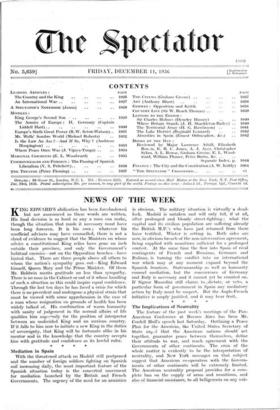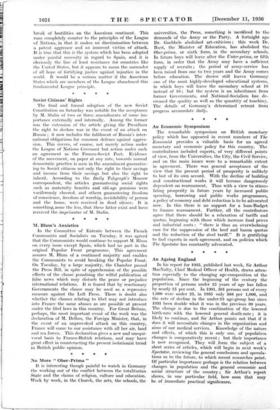The Implications of Neutrality
The feature of the past week's meetings of the Pan- American Conference at Buenos Aires has been Mr. Cordell Hull's speech last Saturday. Outlining a Peace Plan for the Americas, the United States Secretary of State urgLd that the American nations should net together, guarantee peace between themselves, define their attitude to war, and reach agreement with the Governments of other continents. The crux of the whole matter is evidently to be the interpretation of neutrality, and New York messages on that subject suggest that American co-operation with the .Govern- ments of other continents will be extremely limited. The American neutrality proposal provides for a com- plete ban on the supply of arms and munitions, and also of financial assistance, to all belligerents on any out- . break of hostilities on the American continent. This runs completely .counter to the principles of the League of Nations, in that it makes no discrimination between a patent aggressor and an innocent victim of attack. It is true that this is the system which has been adopted under painful necessity in regard to Spain, and it is obviously the line of least resistance for countries like the United States, but it appears to mean the surrender of all hope of fortifying justice against injustice in the world. It would be a serious matter if the American States which are members of the League abandoned this fundamental League principle.

















































